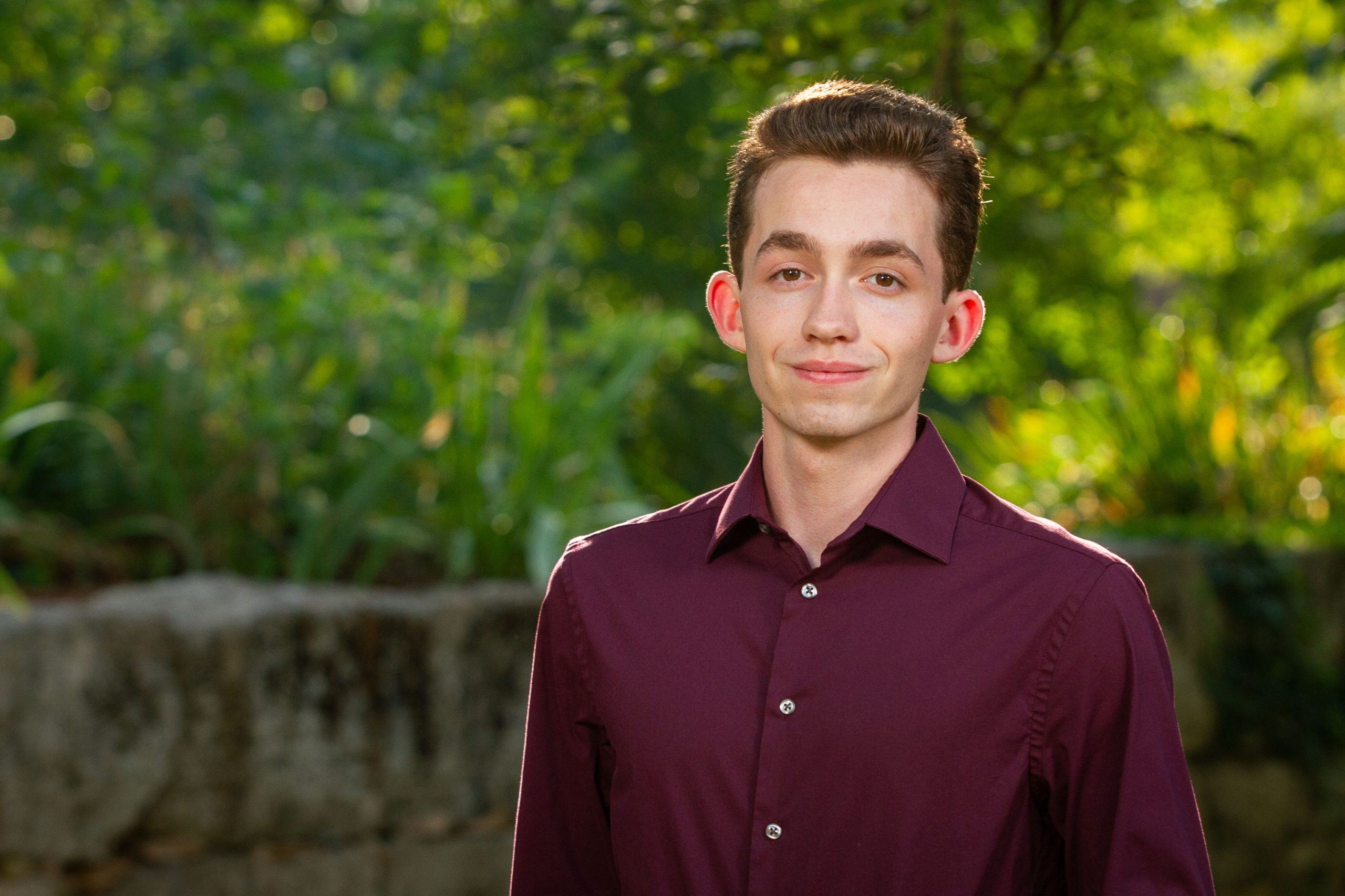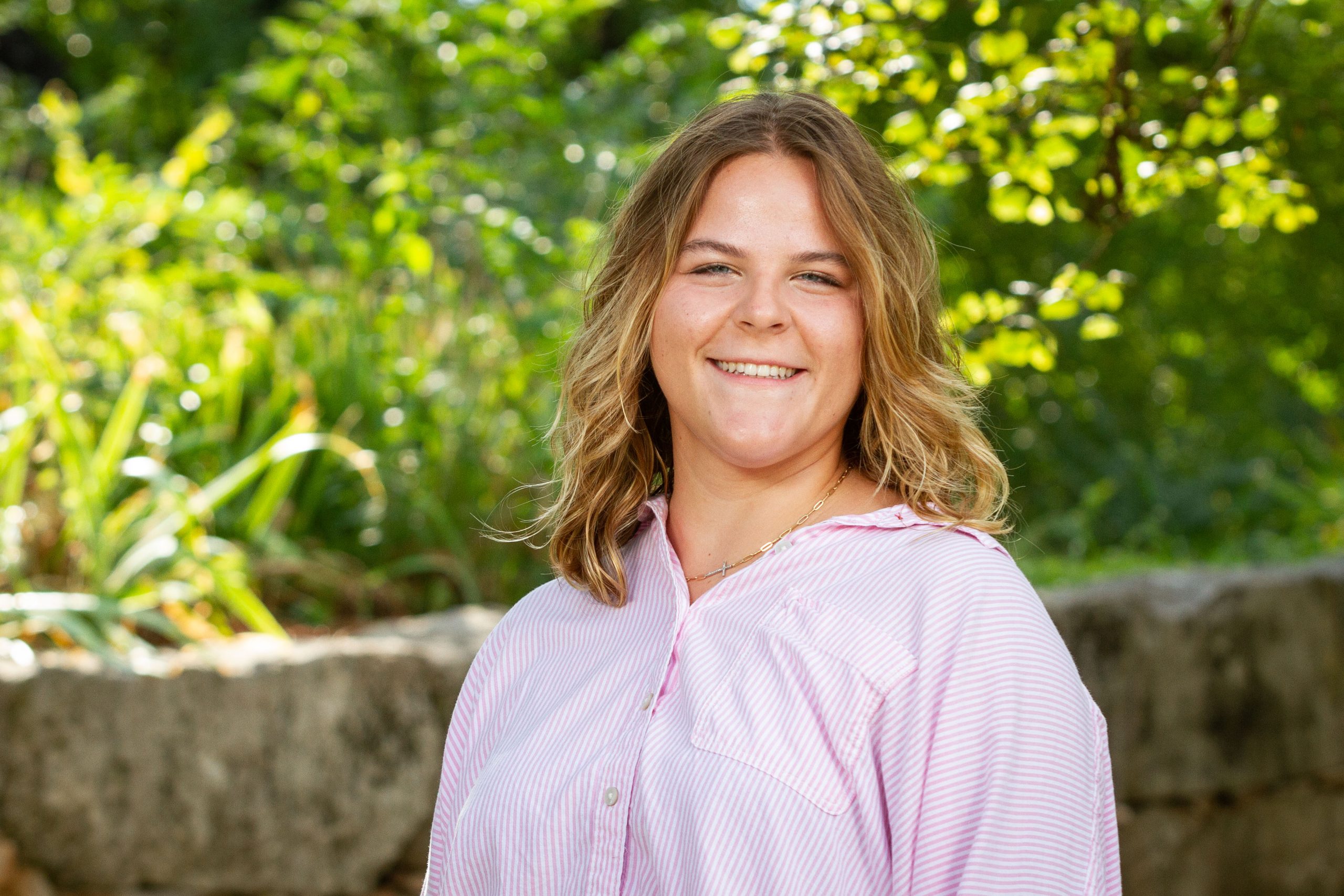Summer 5Q: Justine Missik Pulls Double Duty with Research Projects
July 29, 2010 | 5Q, News, People, Research, Students, Summer, WKU | No Comments
Rising senior Justine Missik (Boyle, ‘11) is having quite a summer! Justine is one of eleven recipients of the Gatton Academy’s Research Internship Grant, which is available to Gatton Academy students in the summer between their junior and senior years to support students during research experiences.
Missik split her award on two separate experiences. In the early summer, she traveled to Portland, Oregon to attend the Santa Fe Institute’s course on Exploring Complexity in Science and Technology from May 19 -21. This course directly benefits the research work that Justine is performing in theoretical systems ecology and network analysis while at the Gatton Academy with Dr. Albert Meier of WKU’s Department of Biology. Later this summer, she’ll be presenting this research at the Ecological Society of America’s (ESA) Annual Meeting in Pittsburg, PA.
Before that meeting, Missik is spending the rest of her summer working with Dr. Stuart Campbell with the Department of Energy’s Spallation Neutron Source at the Oak Ridge National Laboratory (ORNL)–the world’s most powerful pulsed spallation neutron source. Missik is benefiting from access to world-renowned facilities and experts as she interns at ORNL. She is the first Gatton Academy student to perform research directly with the ORNL.
Justine recently took a break from her research work with the ORNL to answer some questions on her research experience.
1. Tell us a little about the project or program in which you are participating this summer that the Research Internship Grant is funding.
This summer I am working at the Spallation Neutron Source at Oak Ridge National Laboratory. I am working on developing a user interface for numerical analysis code on protein dynamics. I will then use this to analyze some data.
2. What is the part of the summer experience you are enjoying most?
I have really enjoyed being at Oak Ridge and meeting people who work there. It has been a great opportunity to be able to work at world-class laboratory! I have also really enjoyed working on a project that I know will be useful to the scientists there.
3. How is this different from the way you think most high school students spend their summers?
Most high school students don’t usually have the kind of opportunities for summer research that the Academy provides, so they aren’t usually involved in research projects. The Academy has provided me with the unique opportunity to work at Oak Ridge, which I would not have been able to do otherwise.
4. Will you be using this research experience as a launching point for any particular applications, competitions, or scholarships?
I’m not currently planning on using this project to enter any competitions, but I am sure the skills and experience I will gain will greatly benefit me.
5. How does this research experience or internship fit into your educational and professional goals?
Though I’m not quite sure yet about what particular field I will want to work in, I know that I want to go into science. I also know that I enjoy working with computers, and this is useful in a variety of different fields. I also plan on continuing to do research. The experience I will gain this summer will help me with all of these things.
6. What are you looking forward to the most about your second year at the Academy?
In my second year at the academy, I am looking forward to being able to take more higher-level classes, such as Computer Science II and Discrete Math. I am also looking forward to continuing my research project from last year.








